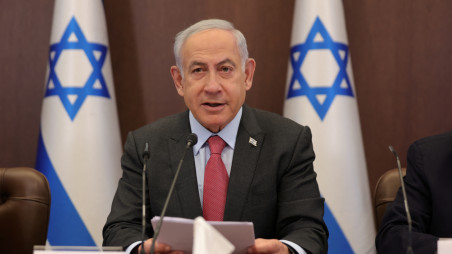The ongoing conflict between Israel and Gaza has captured global attention, prompting urgent calls for ceasefire negotiations and humanitarian aid. As the world witnesses the devastating impact of violence on civilian populations, it becomes imperative to understand the complexities surrounding ceasefire talks and the broader geopolitical dynamics at play. This article delves into the intricacies of the Israel-Gaza conflict, explores the challenges and opportunities in ceasefire negotiations, and examines the implications for regional stability and international diplomacy.
Historical Context: To comprehend the current state of affairs, it is essential to trace the roots of the Israel-Gaza conflict. The historical backdrop includes decades of territorial disputes, demographic tensions, and competing national narratives. The establishment of the state of Israel in 1948 and subsequent Arab-Israeli wars laid the foundation for ongoing hostilities, with Gaza emerging as a focal point of contention following Israel’s occupation in 1967. The rise of Hamas, an Islamist militant group, further complicated the situation, leading to periodic outbreaks of violence and protracted conflict.
Recent Developments: In recent years, the Israel-Gaza conflict has witnessed cycles of escalation and de-escalation, punctuated by intermittent ceasefire agreements and military confrontations. The latest flare-up, triggered by tensions over evictions in East Jerusalem and subsequent clashes at the Al-Aqsa Mosque, escalated into a full-scale conflict in May 2021. The exchange of rocket fire and airstrikes resulted in significant casualties and widespread destruction, drawing condemnation from the international community.
Ceasefire Negotiations: Against this backdrop of violence and humanitarian crisis, efforts to broker a ceasefire have taken center stage. Various mediators, including regional powers and international organizations, have sought to facilitate dialogue between Israel and Hamas. However, navigating the complexities of ceasefire negotiations entails addressing a myriad of factors, including security concerns, political considerations, and humanitarian imperatives. Key stakeholders must balance the imperative of ending hostilities with the need to address underlying grievances and achieve sustainable peace.
Challenges and Opportunities: Ceasefire negotiations face formidable challenges, ranging from deep-rooted mistrust between the parties to divergent geopolitical interests among external actors. Hamas’ status as a designated terrorist organization complicates efforts to engage diplomatically, while Israel’s security concerns and domestic politics shape its approach to conflict resolution. Moreover, the humanitarian crisis in Gaza, exacerbated by blockade and economic deprivation, underscores the urgency of delivering aid and reconstruction assistance.
Despite these challenges, ceasefire negotiations also present opportunities for dialogue, confidence-building measures, and long-term conflict resolution. The involvement of influential mediators, such as Egypt, Qatar, and the United Nations, can provide a framework for constructive engagement and mutual concessions. Confidence-building measures, such as prisoner exchanges and easing of restrictions on Gaza, could pave the way for broader negotiations on core issues, including border security, Palestinian statehood, and the status of Jerusalem.
Implications for Regional Stability: The Israel-Gaza conflict reverberates beyond its immediate borders, impacting regional stability and security dynamics across the Middle East. The specter of conflict escalation poses risks of spillover violence, regional proxy wars, and destabilizing effects on neighboring countries. Moreover, the unresolved Israeli-Palestinian conflict remains a potent source of grievances and radicalization, fueling extremism and undermining prospects for peace and coexistence in the region.
As ceasefire negotiations unfold amid the backdrop of ongoing violence and humanitarian crisis, the Israel-Gaza conflict underscores the imperative of concerted international action to achieve lasting peace and address root causes of conflict. Effective mediation, inclusive dialogue, and sustained humanitarian assistance are essential components of a comprehensive approach to conflict resolution. By addressing underlying grievances, promoting reconciliation, and upholding international law, stakeholders can chart a path towards a more secure, stable, and prosperous future for all parties involved.
